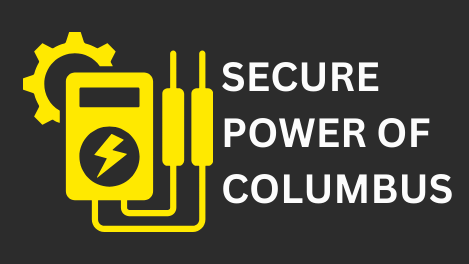
Whole House Generator in Bexley OH
A whole house generator is a robust system designed to provide power to an entire home during an electrical outage. Unlike smaller, portable generators, these units are installed permanently and are capable of running the home’s essential systems, from heating and cooling to appliances and lighting. There are primarily two types of whole house generators:
- Standby Generators: These are the most common and are connected to the home's electrical system. They automatically start when a power outage is detected, ensuring a seamless transition of power. They run on natural gas, propane, or diesel, depending on the model and the available fuel source.
- Automatic Transfer Switch Generators: These generators are also automatic but include a transfer switch that helps in switching the power source from the utility to the generator without manual intervention.
How It Works
A whole house generator operates by detecting a drop in the main power supply. Once it senses an outage, it starts up automatically and begins supplying power to the home. The system includes a transfer switch that disconnects the house from the power grid and connects it to the generator. This switch ensures that power is safely routed and prevents any back-feeding into the grid, which could be dangerous for utility workers.
How It Differs from Portable Generators
Portable generators, while useful, are fundamentally different from whole house generators. Portable generators are usually powered by gasoline and need to be manually started and connected to the appliances or circuits you wish to power. They provide limited power and must be used outdoors due to their exhaust emissions. In contrast, whole house generators are permanently installed and can handle the power needs of an entire home. They offer a higher level of convenience and reliability, starting automatically without any manual operation required.

We will get back to you as soon as possible.
Please try again later.
Professional Installation Process
Installing a whole house generator involves several key steps. First, a site assessment is conducted to determine the best location for the generator and transfer switch. This location must be accessible for maintenance and safe from environmental hazards. Once the location is decided, the generator is installed, including the connection of fuel lines, electrical wiring, and the transfer switch. The system is then tested to ensure it operates correctly and efficiently. Professional installation ensures that the generator meets all local codes and safety standards.
Maintenance and Care
To keep a whole house generator in optimal condition, regular maintenance is essential. This includes checking the oil levels, replacing filters, and ensuring the fuel system is clean and operational. Routine inspections by a professional can help identify potential issues before they become serious problems. Keeping the generator clean and ensuring it has adequate ventilation will also contribute to its longevity and reliable performance.
Costs and Financing
The cost of a whole house generator varies depending on the size and capacity required, as well as the complexity of the installation. Generally, you can expect to invest in a substantial amount for both the unit and its installation. Financing options may be available through various lenders or as part of the installation package. Many homeowners consider this investment worthwhile for the peace of mind and convenience of having a reliable power source during outages.
What Are the Benefits
The primary benefit of a whole house generator is its ability to provide continuous power during an outage, ensuring that your home remains functional and safe. It can keep critical systems like heating and cooling running, as well as protect your appliances and electronics from power surges. This reliability can be especially important in areas prone to frequent power interruptions or in homes with sensitive equipment that needs uninterrupted power.
What We Offer
At our company, we offer comprehensive
whole house generator services in Bexley, OH. This includes expert consultation to determine the best generator for your needs, professional installation, and ongoing maintenance and support. We are committed to providing top-quality products and services to ensure your home remains powered and secure during outages.
- Residential Generators
- Commercial Generators
- Portable Generators
- Electric Generators
- Propane Generators
- Solar Generators
- Generator Repairs
- Generator Maintenance
- Generator Parts
Common Misconceptions
One common misconception about whole house generators is that they are excessively noisy. While older models might have been louder, modern generators are designed to operate quietly. Another myth is that they are difficult to maintain. In reality, with regular upkeep, a whole house generator is quite manageable. Some also believe that these systems are too expensive, but the long-term benefits and protection they provide can outweigh the initial costs.
Troubleshooting Common Issues
Common issues with whole house generators might include failure to start, irregular power output, or problems with the transfer switch. If the generator fails to start, it could be due to fuel supply issues or a dead battery. Irregular power output might indicate a problem with the generator’s internal components or the fuel system. Regular maintenance and prompt attention to these issues can help keep the generator running smoothly. Consulting with a professional technician is advised for any complex problems.
Frequently Asked Questions (FAQs)
Q: How often should I run my whole house generator?
A: It is recommended to run the generator for about 15 minutes every month to ensure it remains in good working condition.
Q: Can a whole house generator power my entire home?
A: Yes, a properly sized whole house generator can power all essential systems and appliances in your home.
Q: What type of fuel does a whole house generator use?
A: Whole house generators typically use natural gas, propane, or diesel, depending on the model and your preferences.
Q: How long will a whole house generator last?
A: With proper maintenance, a whole house generator can last between 10 to 20 years.
Q: Are there any tax incentives for installing a whole house generator?
A: There may be local or federal incentives available, so it’s worth checking with your local authorities or tax advisor.
For more information about whole house generators or to schedule a consultation, please contact us today. Our team of experts is here to help you choose the right generator for your needs and ensure a smooth installation process. Don't wait until the next power outage—get in touch with us now to safeguard your home with a reliable whole house generator.
Let's Connect!
We offer top-notch whole house generator solutions. Our team is dedicated to ensuring your home stays powered during outages. Learn about How Whole House Generators Work in our Buyer's Guide. Don't let unexpected power outages disrupt your life. Contact us today for reliable backup power solutions and embrace a worry-free lifestyle.